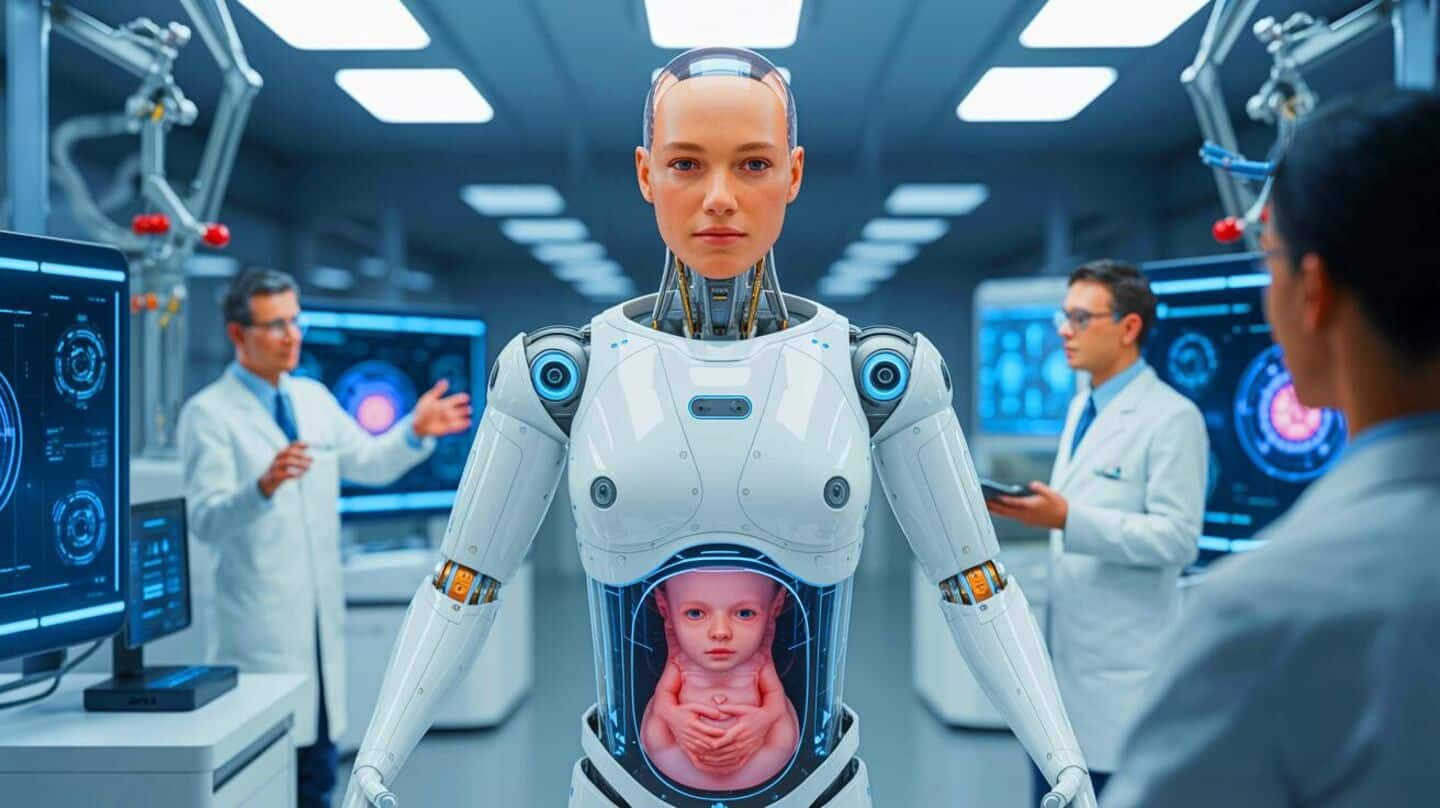
Robots might soon give birth to human babies. Say what!
What's the story
The world's first humanoid robot surrogate could soon give birth to a live baby, scientists have claimed. The innovative technology is being developed by Dr. Zhang Qifeng, the founder of Guangzhou-based Kaiwa Technology. It shall mimic a natural pregnancy from conception to delivery, with the infant developing in an artificial womb and getting nutrients through a tube.
Prototype
Prototype set to be sold next year
Dr. Zhang, a PhD graduate from Singapore's Nanyang Technological University, has said that this groundbreaking technology is already in a "mature stage." The humanoid robot prototype is set to be sold for around £10,000 (around ₹12 lakh) next year.
Biobag inspiration
Technology not completely new, says Dr. Zhang
Dr. Zhang said this technology isn't completely new, as scientists have previously kept premature lambs alive in a "biobag" for weeks. The developing babies will be surrounded by artificial amniotic fluid to create a womb-like environment. However, details on how the egg and sperm are fertilized remain unclear at this stage of development.
Ethical concerns
Legal and ethical debates
The innovative technology has already sparked a legal and ethical debate. Dr. Zhang said he has been in talks with Guangdong Province authorities to draft policy and legislation for this new frontier of reproductive technology. However, some critics have condemned the "problematic" technology, arguing that depriving a fetus of its maternal connection is unethical and cruel.
Doubts
Medical experts skeptical
Chinese news outlet The Standard reported that some medical experts are skeptical about the technology's ability to replicate the human gestation. These experts have allegedly claimed that complex biological processes, such as maternal hormone secretion, cannot be duplicated by science. Despite these concerns, proponents of artificial wombs argue they could free women from pregnancy risks and the physical burden of carrying a baby.